This topic is very near and dear to my heart. I have struggled with anxiety and depression throughout my entire life – as a child, teen, adult, first trimester of pregnancy to postpartum. It has shown up in varying levels of severity. As an adult I have not succumbed to it, however. I fight back! I have empowered myself with expert support along with a holistically healthy lifestyle. I hit it on all fronts. And I will tell you how today, with foods that may reduce anxiety. And recently I had a close friend ask me if there are ways to combat anxiety with food. I realize now more than ever this topic needs to be discussed, shared, embraced, and supported. Holistic remedies for anxiety exist; however I don’t dare to suggest that dietary modification will ever be the most important intervention in this field. I do want you to know though that there is emerging evidence to suggest that food and lifestyle habits play a meaningful role.
So here we are my fit family. 😊
 Did you know that the World Health Organization (WHO) suggests that anxiety and related disorders will become the second leading cause of disability in both developed and developing countries by the year 2020?? So it’s that time… anxiety and depression often go hand in hand, with about half of those with depression also experiencing anxiety.
Did you know that the World Health Organization (WHO) suggests that anxiety and related disorders will become the second leading cause of disability in both developed and developing countries by the year 2020?? So it’s that time… anxiety and depression often go hand in hand, with about half of those with depression also experiencing anxiety.
The main line of defense are Benzodiazepines. Although benzodiazepines have well-known benefits, their side effects are quite prominent. There is no free lunch! Thankfully the interest in alternative medicine and plant-derived functional food to conquer stress and promote relaxation has increased along with mindfulness and psychological techniques. I would like to state a very important disclaimer that it is imperative you remain compliant with medication prescribed by your doctor(s) and you follow the care plan that you have agreed upon until you and your medical team decide otherwise. Don’t be rash and reckless! There are supplements that may help to reduce anxiety, but I will not go into that today.
Is there really a diet to reduce anxiety? It can’t hurt. So… let’s talk about the food-based approaches that may help!
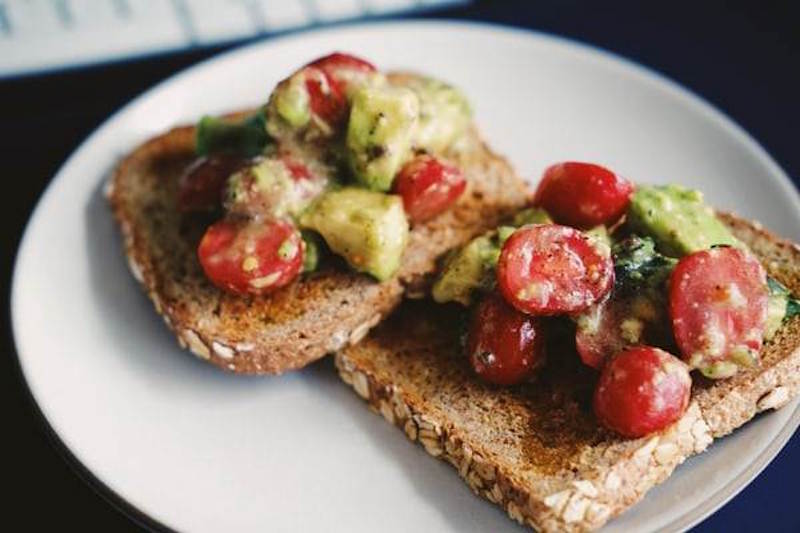
Balance Blood Sugar:
There are two types of carbohydrates: those in their natural food form comprised of a long chain of simple carbs (three or more) linked together (which is referred to as “complex”), and those that are already in smaller pieces (one or two sugars), referred to as “simple.” These complex creatures contain vitamins, minerals, and antioxidants. Oatmeal, brown rice, quinoa, potatoes, beans, peas, and lentils are examples. Do you see how they are all “whole” foods?
So why does this matter… Complex carbohydrates are metabolized more slowly and therefore help maintain a more even blood sugar level, which creates a calmer feeling.
Another idea is to pair your carbs with protein and/or some healthy fats to ensure slower release of sugar in the blood.
When you eat is also important. Don’t skip meals. Doing so may result in drops in blood sugar that cause you to feel jittery, which may worsen underlying anxiety.
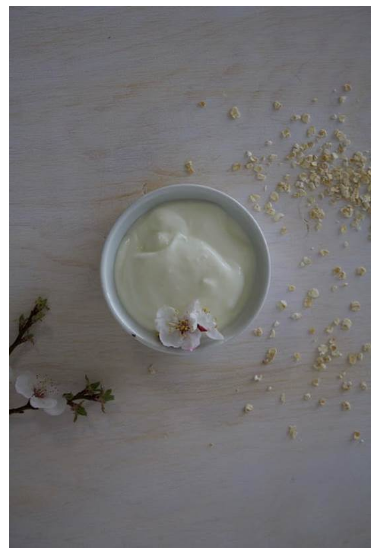
Probiotics and Fermented Foods:
The gut-brain axis is crazy important, since a large percentage (about 95%) of serotonin receptors are found in the lining of the gut. Research is examining the potential of probiotics for treating both anxiety and depression. A study in the journal Psychiatry Research suggested a link between probiotic foods and a lowering of social anxiety. Eating probiotic-rich foods such as pickles, yogurt, sauerkraut, and kefir was linked with fewer symptoms.
As for probiotic supplements – The state of current science is not such that we can confidently “prescribe” certain strains and guarantee a specific outcome, but there does appear to be something here worthy of future and more definitive exploration. I take a probiotic daily for immunity and mental well-being support.
Omega 3’s:
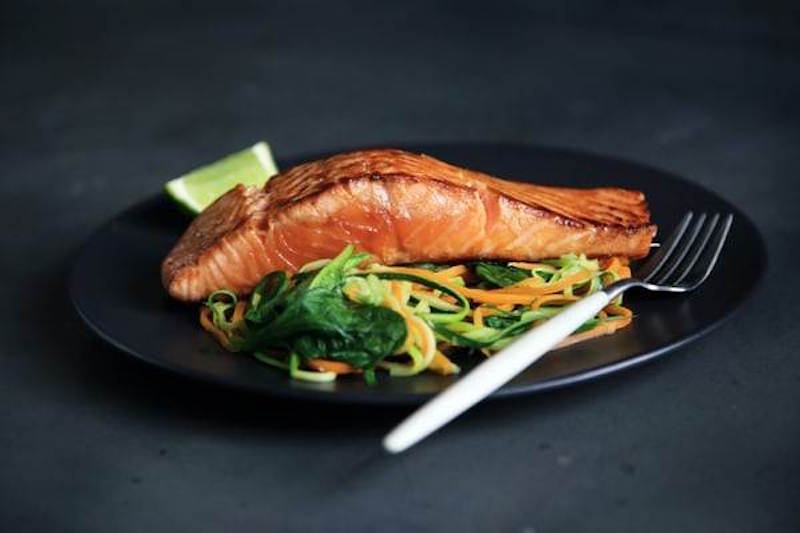
They are revered for their anti-inflammatory capabilities (which derives from the impact their presence in cell membranes has on cellular signalling). But did you know they can do more? A study completed on medical students in 2011 was one of the first to show that omega-3s may help reduce anxiety. (This study used supplements containing omega-3 fatty acids). Prior to the study, omega-3 fatty acids had been linked to improving depression only. I have been taking fish oil supplements for decades because of this! Omega 3’s are considered essential because our bodies cannot synthesize them; Omega-3s occur naturally in very few foods.
Plant-based sources include flaxseed, hemp seed, chia seed, walnuts, as well as soy-based foods such as tofu to a lesser extent.
These foods contain the omega-3 fatty acid known as ALA which is weakly converted to the more prominent long-chain omega-3s known as EPA and DHA.
Marine-based sources include most varieties of fish, but especially fatty varieties such as salmon, herring, mackerel, trout, and sardines.
It is the marine-based versions of omega-3s, which can also be acquired via algae-based supplements, that tend to gain the most attention.
Magnesium:

In mice, diets low in magnesium were found to increase anxiety-related behaviors. Foods naturally rich in magnesium may, therefore, help a person to feel calmer. Examples include leafy greens, such as spinach and Swiss chard. Other sources include legumes, nuts, seeds, and whole grains.
CBD:
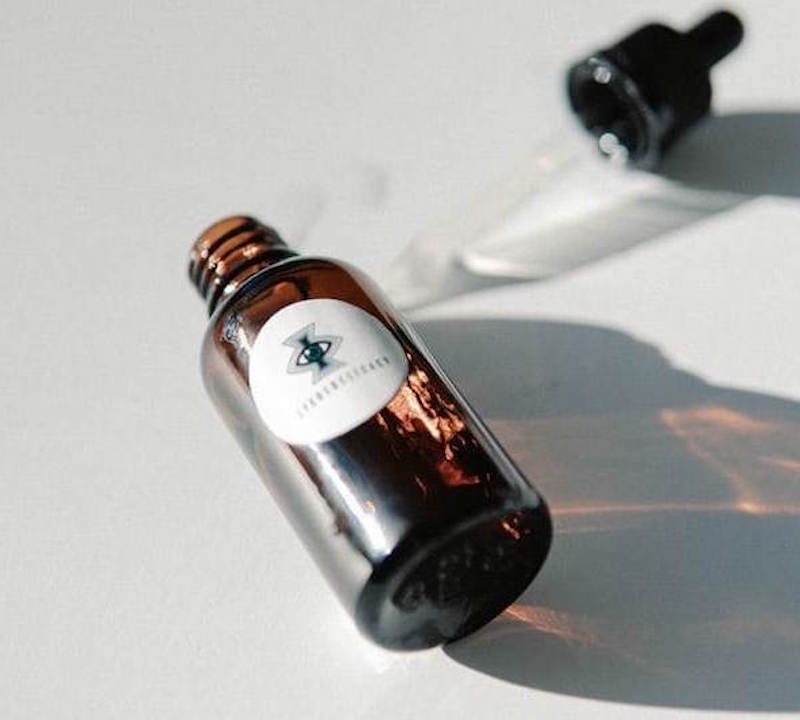
The topic of non-prescription anxiety management has certainly become one of great personal and professional curiosity! I have experimented with CBD tinctures and mints and noticed subtle support. I won’t go in this topic today, but I think this is a promising field. As always, run everything by your primary care physician.
Antioxidants Content

I.e. Nutrient dense foods! Free associate with me regarding the word “oxidation.” Rust. Dying. Now think of the word “anti.” These foods fight oxidation! Anxiety is thought to be correlated with a lowered total antioxidant state. So it makes sense to bump up those foods rich in antioxidants, right? A 2010 study reviewed the antioxidant content of 3,100 foods, spices, herbs, beverages, and supplements. Foods designated as high in antioxidants by the USDA include:
- Beans: Dried small red, Pinto, black, red kidney
- Fruits: Apples (Gala, Granny Smith, Red Delicious), prunes, sweet cherries, plums, black plums
- Berries: Blackberries, strawberries, cranberries, raspberries, blueberries
- Nuts: Walnuts, pecans
- Vegetables: Artichokes, kale, spinach, beets, broccoli
- Spices with both antioxidant and anti-anxiety properties include turmeric (containing the active ingredient curcumin) and ginger.
So it makes sense that fruit and vegetable intake (as well as more plant-based eating on the whole) are both associated with reductions in anxiety prevalence and severity.
Now on the flip side – Foods that may trigger additional anxiety:
- Excess Caffeine
- Added sugar
- Alcohol
- Highly processed foods
- Excess salt
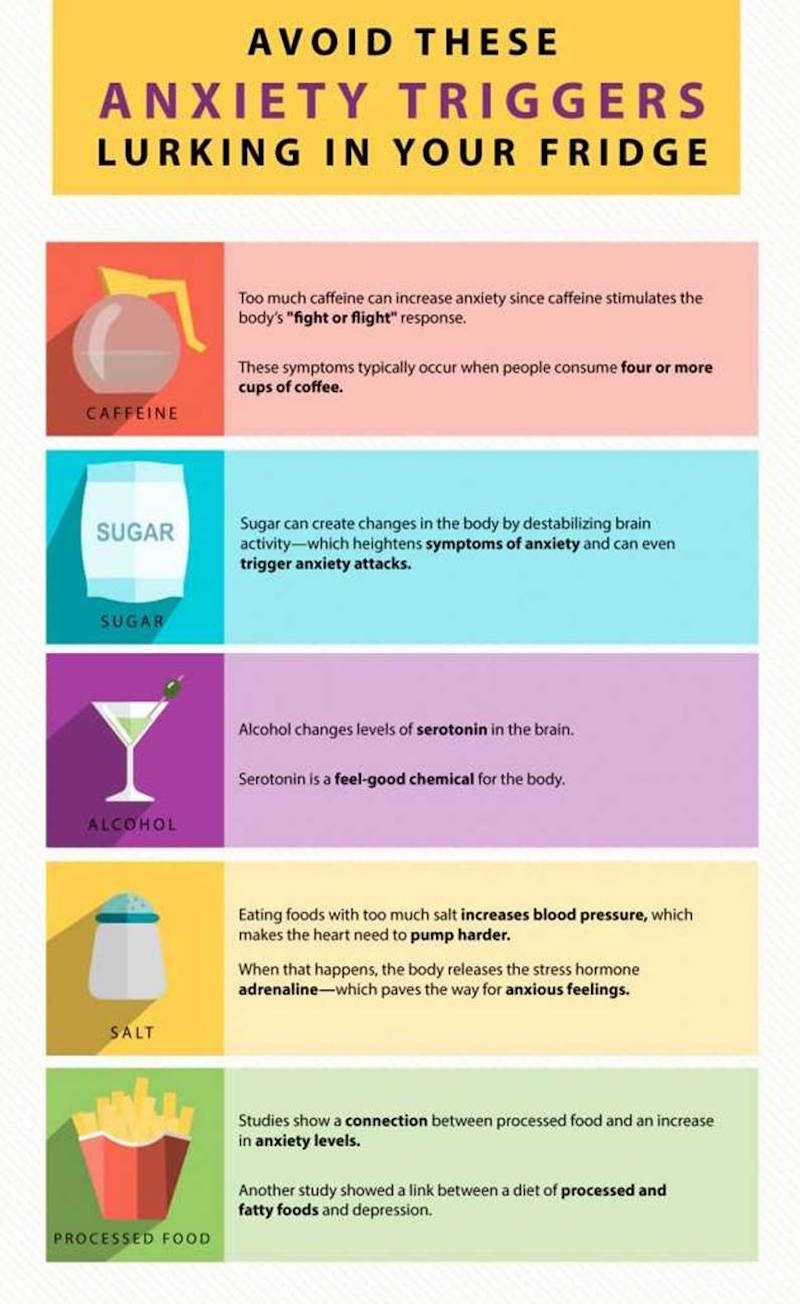
And here’s a related segment by Studio SWEAT family member Haley (our beloved Eric’s wife) who is a master at sustainability and homeopathic recipes and lifestyle. She inspires me weekly (you simply MUST follow her on Instagram @hippiehappyhaley):
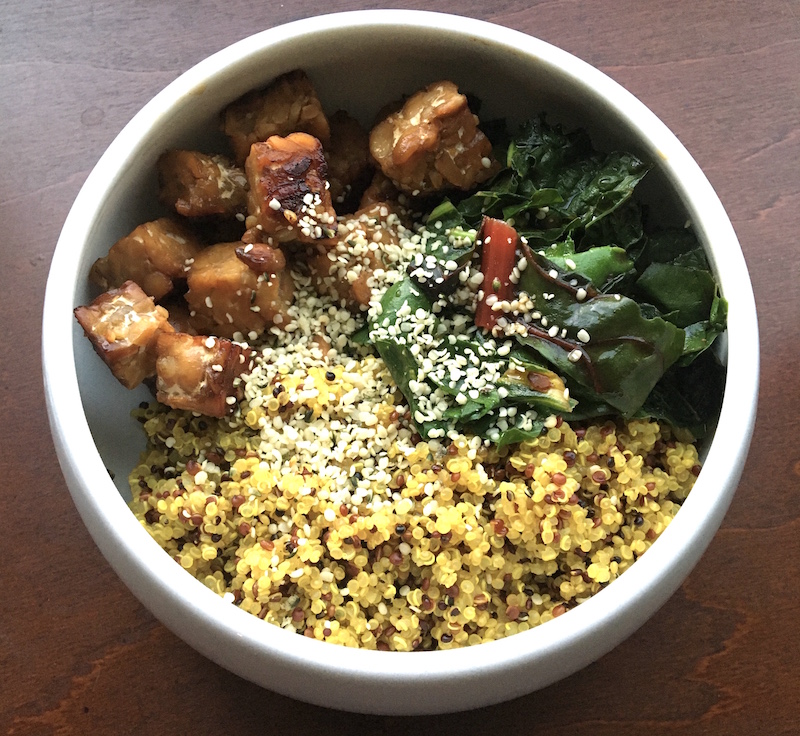
- Combine soy sauce, lime juice, maple syrup, and sesame oil in a bowl to create a marinade. Cut tempeh into small cubes, add to marinade, and stir to thoroughly coat. Set aside.
- While the tempeh is marinating, prepare and cook your quinoa. Rinse your dry quinoa and add to a pot with water, turmeric, salt, and pepper. Bring to a boil and then reduce heat to maintain a low simmer, stirring every few minutes. Simmer until all the water is absorbed (approximately 15 minutes), then turn off heat and cover with a lid to steam.
- While the quinoa is steaming, remove tempeh from marinade and add to a large hot pan (save the extra marinade!) with the cooking oil. Sauté on medium heat for about five minutes, or until the tempeh is browned.
- Remove tempeh from the pan and add your greens. Sprinkle on salt and garlic powder and stir well, sautéing for about two minutes, or until greens are just slightly wilted.
- Assemble your Peace Bowls! Quinoa in first, then tempeh and greens, and top with a sprinkle of hemp seeds and a drizzle of the leftover marinade. This recipe should make at least three servings. Enjoy!
~Haley
Final Reflections
As initially stated, the world of food will not prevent or singularly manage a beast like anxiety; however, there is no denying the protective effects of certain dietary components. Much like most alternative therapies and homeopathic interventions, it’s “part of” other management you must do for treatment, and can certainly help. So why not give it a go and make your body more powerful?
In health and harmony,
Miriam Jirari MPH, RD, CPT,
Certified Intuitive Eating Counselor and Behavior Specialist
Studio SWEAT Dietitian
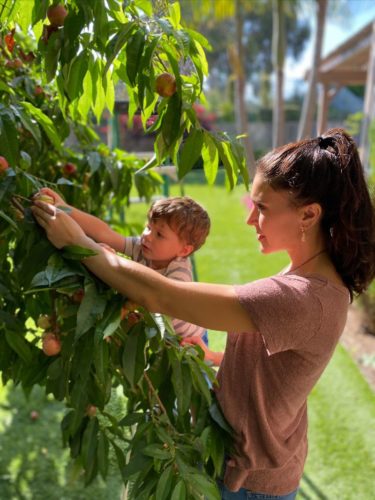
Resources:
- https://andytherd.com/2020/10/01/the-3-types-of-foods-that-help-fight-anxiety/
- https://www.ncbi.nlm.nih.gov/pmc/articles/PMC3853311/
- https://www.livestrong.com/article/27398-list-complex-carbohydrates-foods/
- https://www.health.harvard.edu/blog/nutritional-strategies-to-ease-anxiety-201604139441
- Healthy Holistic Living




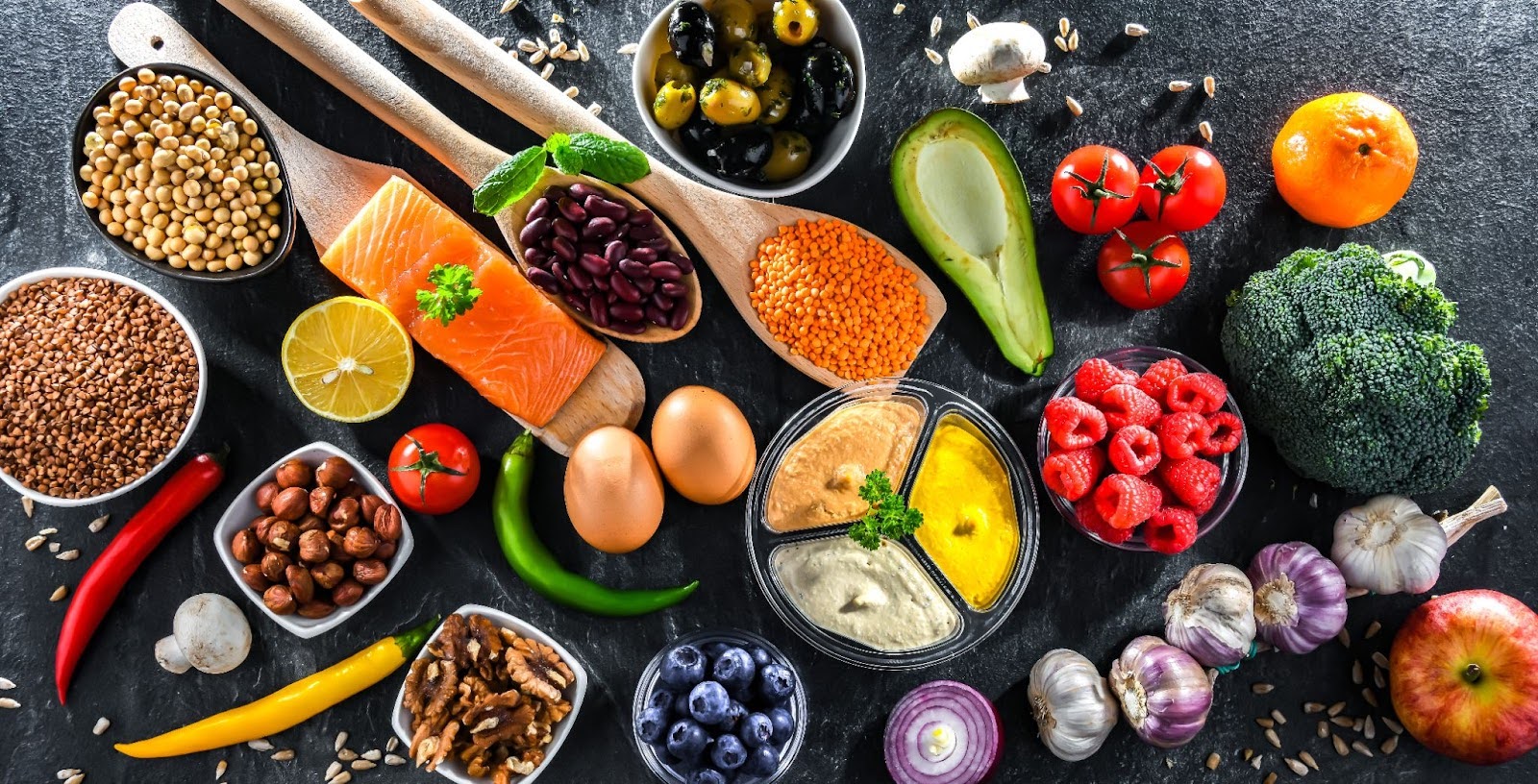





Comments - 2